How to Draw a Chevrolet Camaro
And today, to touch a true legend, we will show you how to draw a Chevrolet Camaro – an iconic American sports car or muscle car, produced by Chevrolet, a division of General Motors, since 1966.
Over the decades, the exterior design of the Camaro has undergone many changes, yet its bold and aggressive character has always remained a key element of its styling.
The Chevrolet Camaro is a genuine legend of the automotive world. There are countless ways to describe it, but it’s always better to see it once – or even better, to draw it.
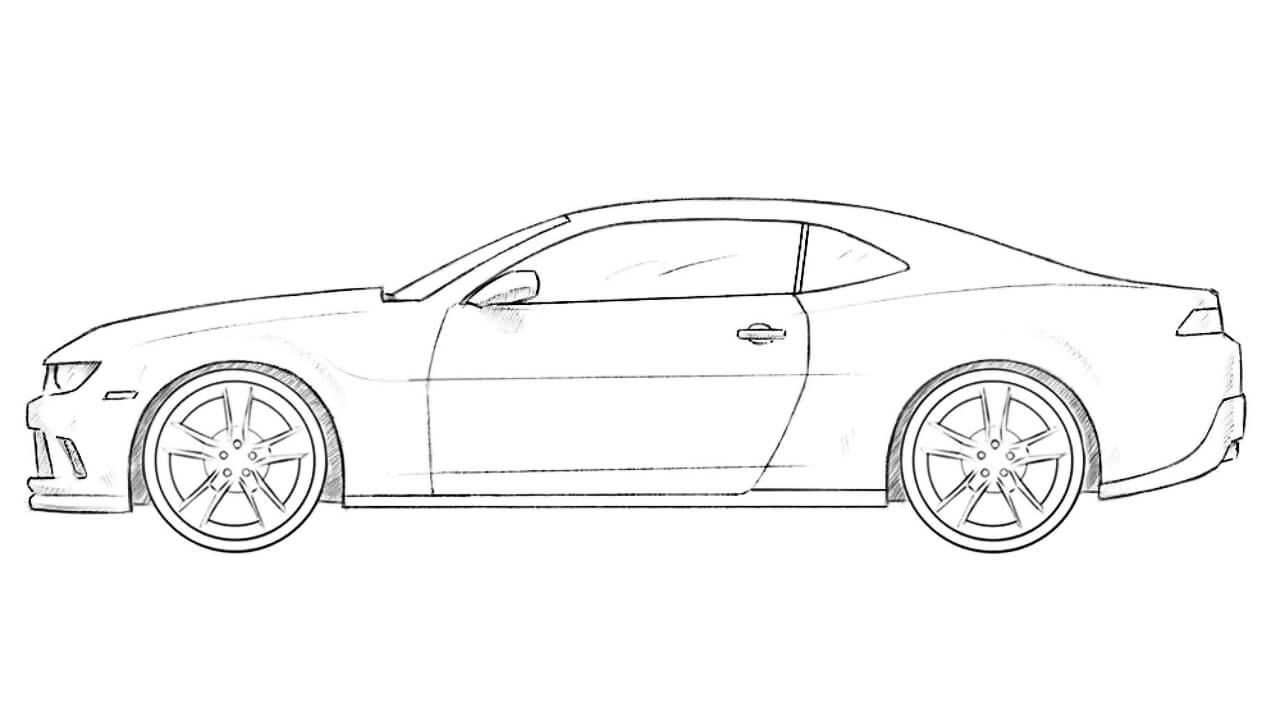
How to draw a Chevrolet Camaro: step-by-step tutorial
Step 1 – Sketch the silhouette of the Camaro coupe
This model is a coupe, so the silhouette should match. Smooth and powerful body lines need to be shown with very light strokes. When sketching the outline, remember the proportions: a long hood and a relatively short rear deck.
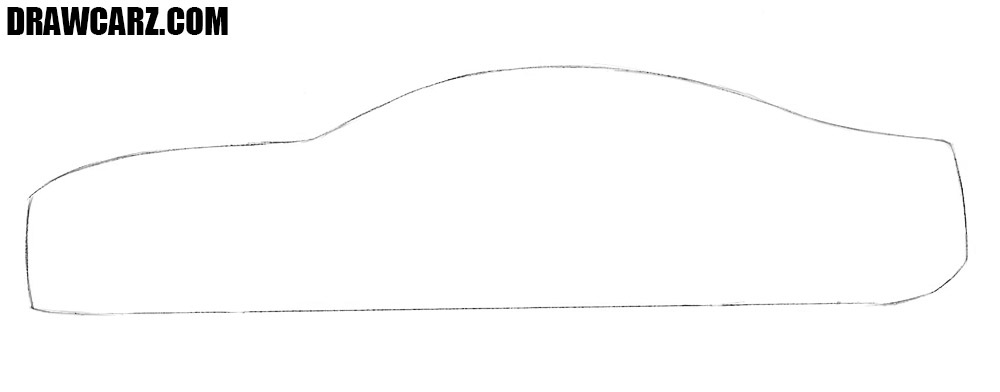
Step 2 – Add the narrow windows and large wheels
Slim windows and oversized wheels create the recognizable look of this pony car. This step is dedicated to the windows and tires, drawn with light strokes. The windows should look slightly compressed to convey aggressiveness, while the wheels must appear wide and dominant, as large rims are part of the muscle car image.
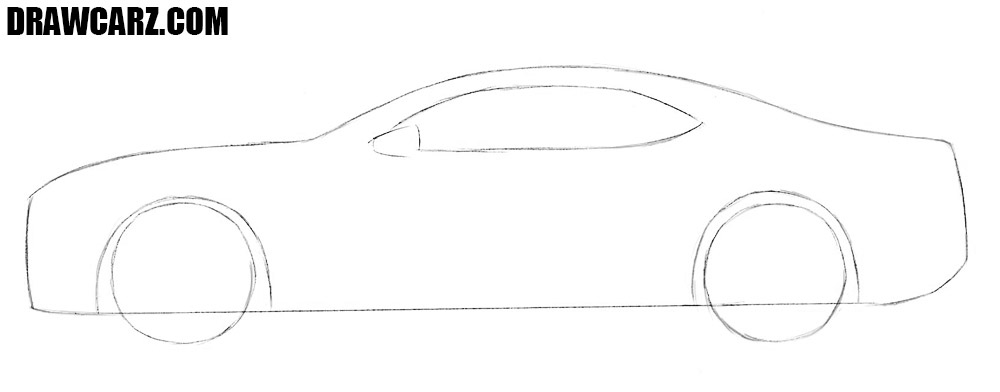
Step 3 – Sketch the aggressive headlight, taillight, and door
Aggressive headlights and a two-door layout complement the style of this performance car. So, using smooth lines, draw these parts on the side of the Chevrolet Camaro body. In addition, sketch the outlines of the large rims. The headlamp should look sharp and narrowed, and the rims oversized.
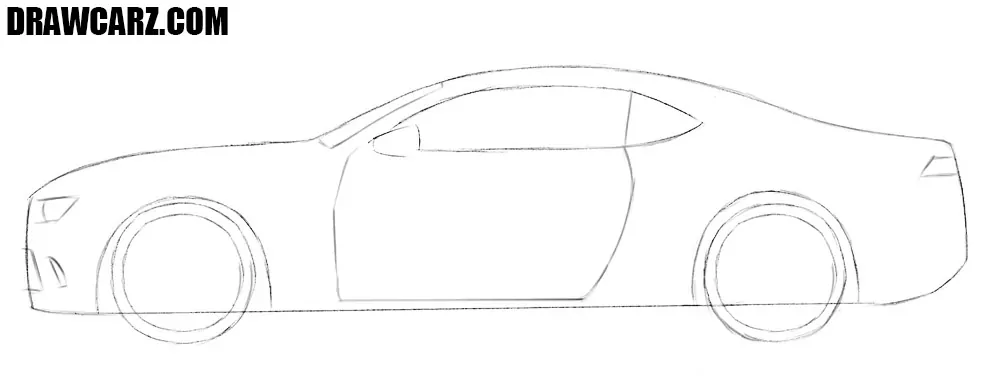
Step 4 – Refine the front bumper and headlamp
These details must be drawn with neat, clean lines. Outline the front end, including the headlight and bumper elements. Use the eraser to clear extra strokes. Make the front heavy and muscular, with pronounced details and strong shapes.
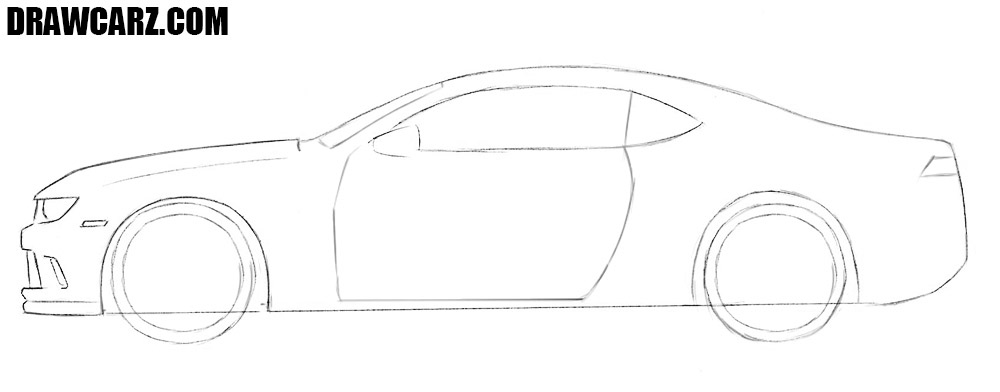
Step 5 – Detail the Camaro’s aerodynamic roofline and window
Due to aerodynamic requirements, the roof of sports cars becomes very flat and the rear end is very sloping. As a side effect, we get a cool look. Draw out this roof, that should flow smoothly into the rear, creating a slanted back profile, and side window with and the mirror.
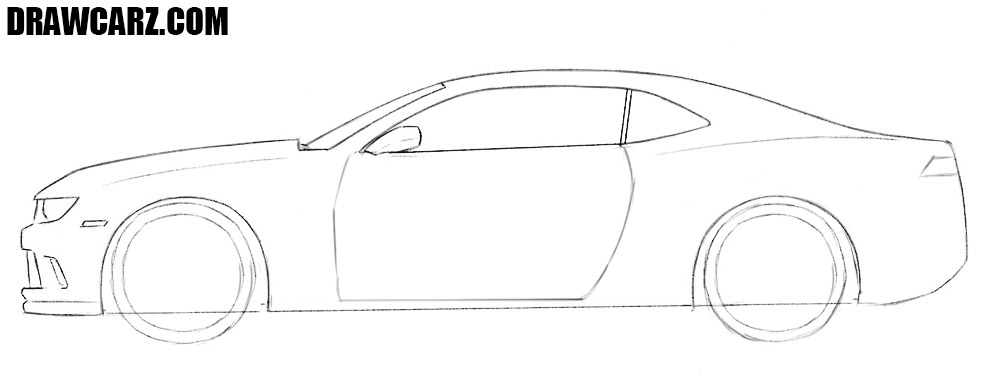
Step 6 – Draw the Chevrolet Camaro’s coupe door and handle
Since this is a coupe, draw a single elongated door. It should extend toward the rear wheel arch, typical of such proportions. At the back, include bumper contours, taillight outlines, and dual exhaust pipes. Above the bumper, draw out the Camaro taillight.
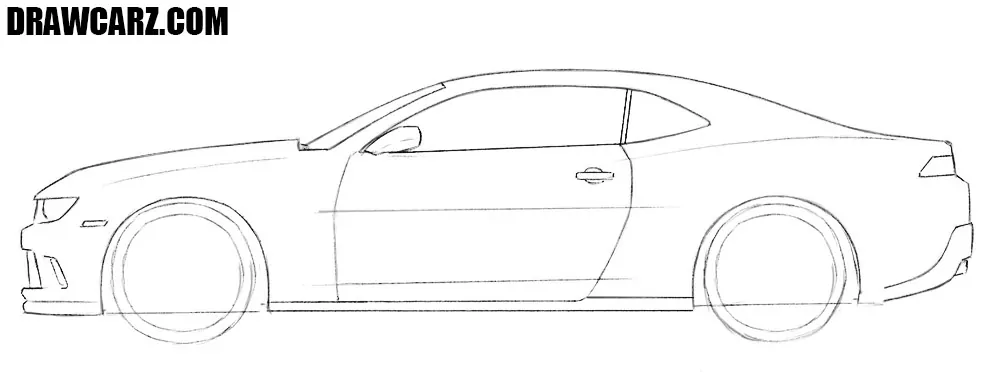
Step 7 – Add alloy rim patterns to the wheels
Outline the wheels carefully so they appear round and smooth. Then illustrate the standard alloy patterns, or take inspiration from our other guides. This vehicle often features multi-spoke designs, but you can choose simpler five-spoke or more intricate layouts depending on style.
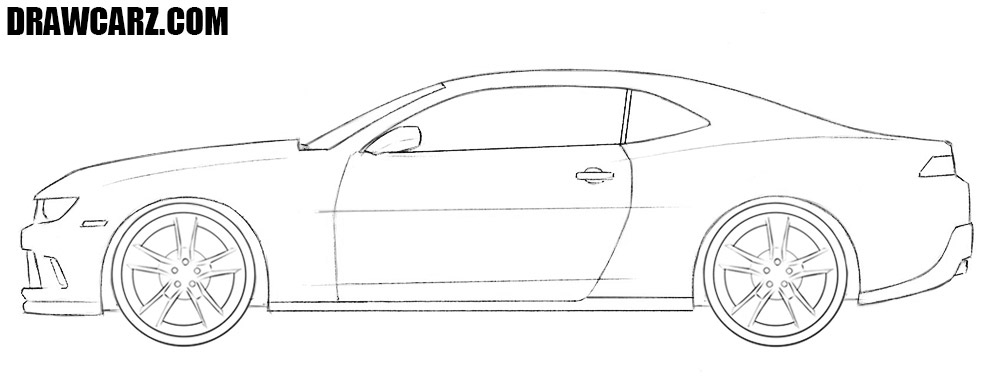
Step 8 – Add shading and highlights to your Chevrolet Camaro
Shading with hatching will make your muscle car drawing look three-dimensional. Keep in mind curves and areas hidden from light to place shadows correctly. The lower panels, wheel wells, and undersides should be darker, while the roof, hood, and upper fenders remain lighter.
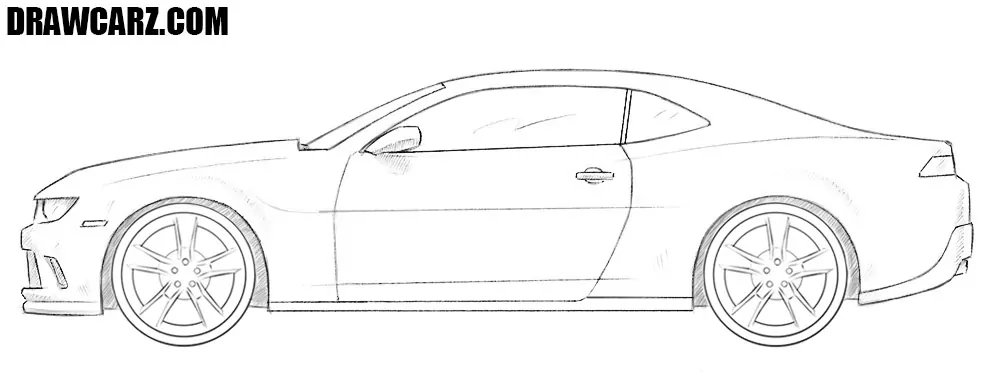
Chevrolet Camaro drawing tips
DrawCarz.com is very fond of muscle cars, and the Chevrolet Camaro drawing guide was made primarily to teach our readers how to sketch cool muscle and pony cars.
Muscle cars have unique proportions: a long hood, short rear deck, and wide stance. When sketching, it’s important to convey these features so the sketch doesn’t lose the aggressive look that defines the Camaro and other cars in this class.
Chevrolet Camaro – the iconic American sports car. Its popularity has remained unchanged for more than 35 years of model history.
Over this time, the Camaro has gone through six generations, each with changes in headlights, grille design, and body contours.
Understanding these differences helps you adapt your drawing depending on whether you want to sketch a classic version or the latest modern one.
The updated car acquired a more original design but retained all the best features of the representatives of the old issue. It is created with the latest technology: using modern technological developments and design solutions.
In drawing terms, this means sharper, more aerodynamic lines compared to earlier models. The current Camaro has narrower headlights, a lower roofline, and a more sculpted body, which should be reflected in sketches to capture its modern appearance.
Years pass, and the coolness of this sports car remains at a high level. For the artist, this means the Camaro is always a relevant subject to draw.
If you want to adapt the current tutorial for an older Camaro, focus on changing the front fascia, headlight shapes, and wheel design. These details are what most clearly separate one generation from another.
Drawing other muscles cars
To learn more basic and fundamental principles, visit our main car drawing tutorial. Also, don’t forget to visit our Muscle Car category to learn how to draw other similar cars.
There you’ll find step-by-step guides on other models. For example, you will learn how to draw a Ford Mustang and find a Dodge Challenger drawing tutorial, which share many design cues with the Camaro.
Practicing across several muscle cars helps you recognize common elements while also noticing the unique traits of each brand.


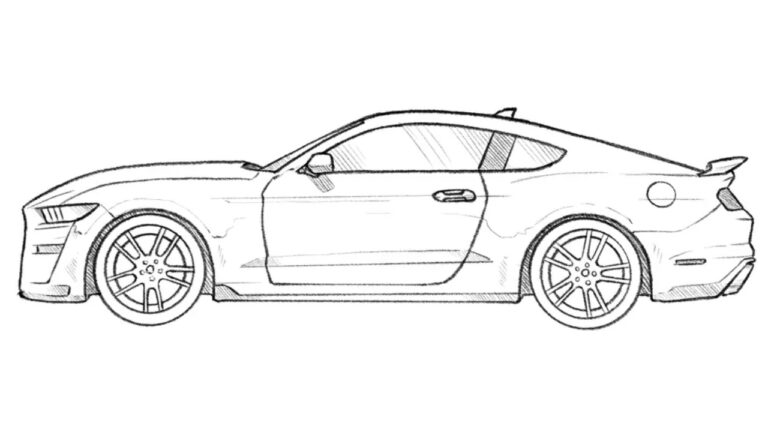
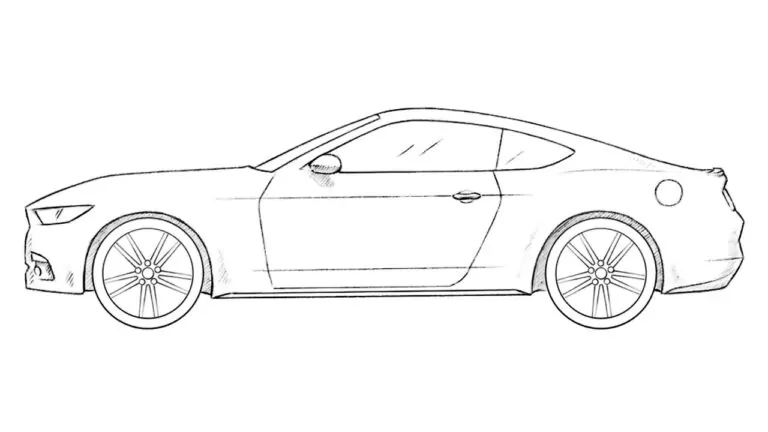
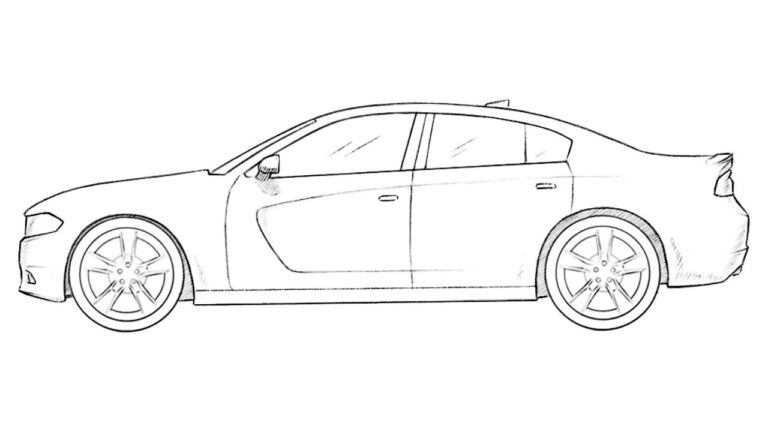
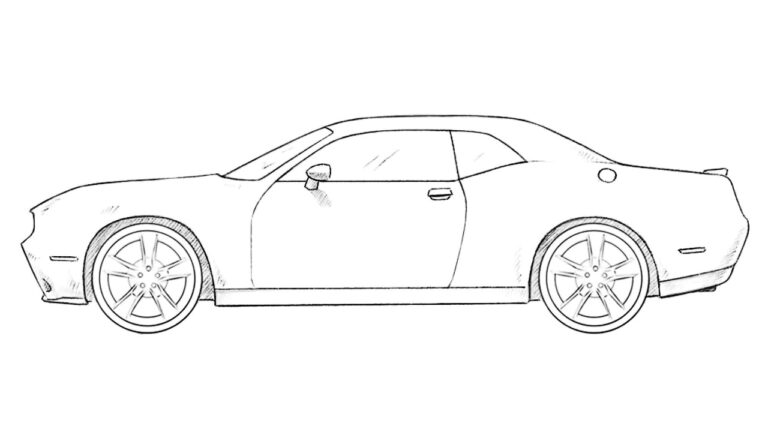
It helped so much
Thank you very much. We are glad that our site helps you.
Что помогло?
Привет! Супер!
Hi. Thank you so much.
Я рисую много машин и мне нравится этот сайт! Благодарю что он есть!
Thank you. We are very happy you like our drawing tutorials.
lovely car
Thank you, glad you liked the car.
This site is awesome especially for the fact that i am an aspiring artist myself [i’m really good at drawing]
Great to hear, keep going with your drawings.